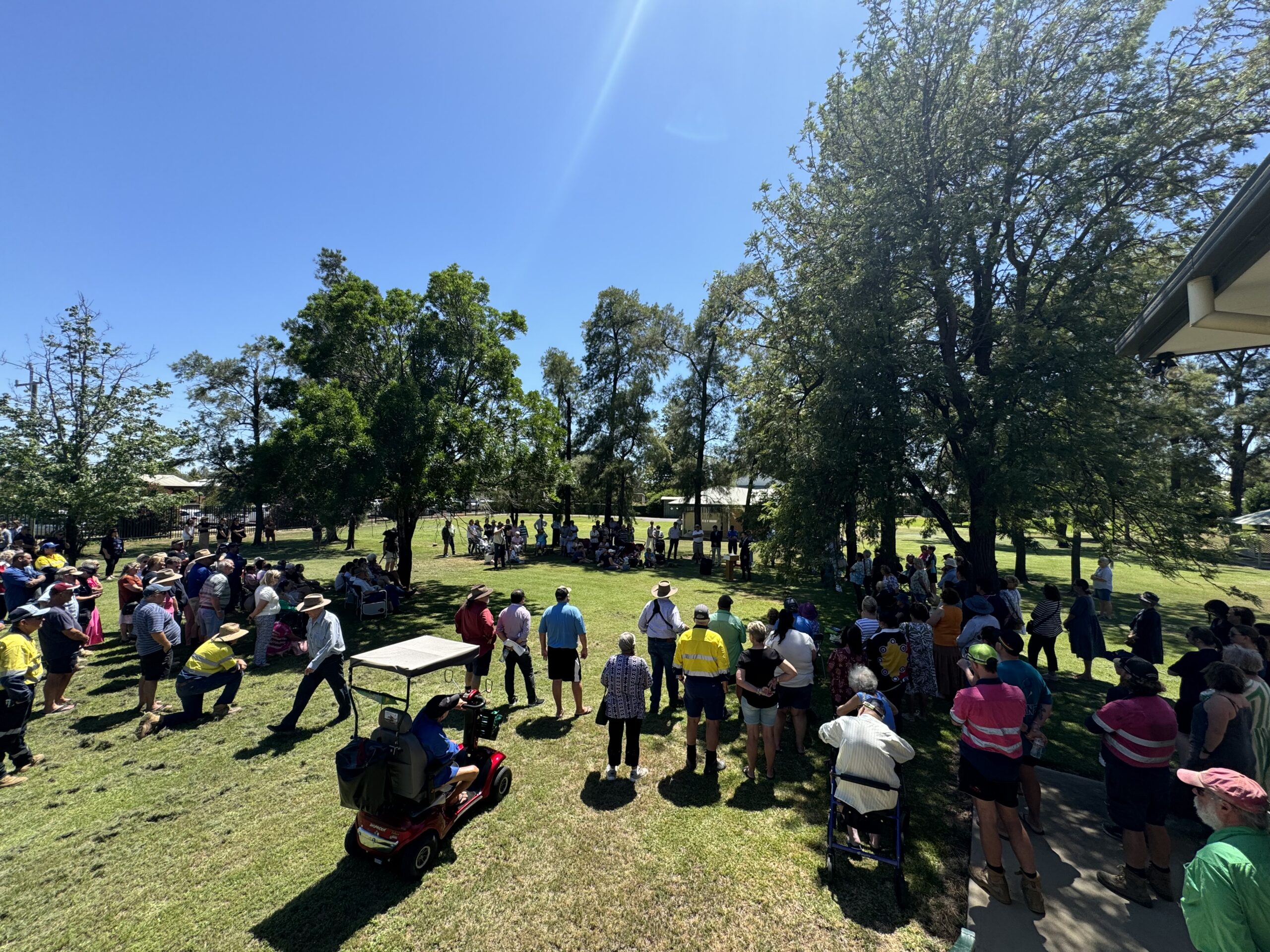Twenty-five council areas home to almost one million people feature in the Hunter New England Local Health District. Of all the cities and towns covered by the district, just one features prominently in an inquiry looking into its proposed division … Wee Waa.
As reported by The Courier last week, local submissions to a NSW Parliament inquiry show broad community approval for splitting the district. Analysis of the submissions also shows strong concern about the state of health services in Wee Waa.
Of the 101 submissions received, including confidential items unable to be viewed by the public, almost 25 highlight concerns about the lack of 24-hour medical facilities in Wee Waa or provide examples of having to travel to seek treatment, particularly to Narrabri Hospital and then further in the health district.
Community organisations including Wee Waa Local Aboriginal Lands Council, Wee Waa Chamber of Commerce, Save Wee Waa Hospital Committee, RiverBank Youth Works and Wee Waa Hospital Auxiliary feature in the inquiry alongside Wee Waa residents and farming businesses.
“In western countries we expect health access and outcomes to improve over time with each generation. In Wee Waa the opposite is the case as our access to 24/7 health care is less than it was two years ago and much less than it was eight years ago when local doctors had VMO rights to Wee Waa Hospital,” NSW Farmers Wee Waa branch secretary Carmel Schwager wrote in her submission.
“Access to a 24/7 hospital with access to an onsite doctor is vital for farming districts – especially as the latest AgHealth Australia data report found 75 per cent of injuries reported on farm occurred in QLD and NSW and in 2024 there was a ‘concerning increase in on-farm fatalities and serious injuries’.
“The Wee Waa Hospital is in the Hunter New England Health District. By comparison, nearby rural isolated towns with similar populations in the Western NSW Health District including Walgett Health Service, Baradine Health Service, Collarenebri Hospital Service, Coonabarabran Health Service and Coonamble Health Service all have 24 hour emergency care, inpatient beds including general medicine and palliative care,” Carmel Schwager wrote in her submission.
“Some have other services, but they all have these basic health services at a minimum.”
Mrs Schwager said the branch and the community simply want the same hospital services as other towns of similar size in the Western Health District and Hunter New England Health District.
“Under the poor management of HNEH our reality is:
“- Wee Waa Hospital does not admit patients overnight, meaning residents cannot stay for observation or treatment.
“- Basic medical procedures, such as stitches or urgent care for snake bites, require travel to Narrabri, even during Wee Waa Hospital’s opening hours.
“- The community-funded palliative care (Serenity Room) is unavailable, forcing terminally ill patients to die away from home, making it harder for families to be with them.
“- Aged care residents needing overnight care must be transferred to Narrabri, an unfamiliar setting that can be distressing for them and their families.
“- For overnight sickness or emergencies, residents must either wait for morning medical care or travel to Narrabri, relying on private transport or an ambulance.
“- Ambulance services are more stretched as they must bypass Wee Waa Hospital, increasing travel times and reducing availability.
“- Wee Waa has no taxi service, and public transport is extremely limited, making it nearly impossible for those without private transport to reach Narrabri Hospital or visit loved ones.”
In its submission, Wee Waa Chamber of Commerce said the current health district is not fit for purpose to meet both urban and rural health needs.
“It is important to understand that during the town’s separate harvesting and ginning seasons, businesses need to work 24/7 for at least four months of the year. This means the community needs suitable healthcare support, otherwise accidents and emergencies would take an extra 40-80 minutes travel, depending on where the incident had occurred,” the chamber submission read.
“This becomes an unreasonable burden on the lives of the Wee Waa and district community. This would never be accepted in urban areas like Sydney or Newcastle.
“Wee Waa, unlike Sydney or Newcastle, does not have a large workforce it can rely on. Wee Waa must entice workers to move and settle in our community, so that it may thrive with the state and the economy. During peak seasons, Wee Waa like many communities rely on workers from a variety of areas, this includes local and international backpackers, working holiday visa holders and locals where practical.
“However, if the community hospital is not functional, this places both the community and visiting workers at risk. Farming and industrial work is accident prone. Where there are people, there is always the risk of injury or death.
“A fully functional hospital that is available 24/7 is paramount for a productive community to maintain its workforce.”
The importance of a 24-hour local hospital supporting the district’s role as a leading agricultural producer was a common theme in the submissions.
Daniel Kahl, writing on behalf of local Merced Farming, said as a business operating in a regional area with 24/7 farming activity, they understand firsthand the importance of reliable, accessible healthcare.
“The wellbeing of our workforce of more than 30 people and their families—who are frequently required to use heavy machinery and work in physically demanding environments—relies on timely access to medical services in the event of an emergency,” he said.
“Currently, our closest hospital after 5.30pm is more than 30 minutes away by car. For a business like ours, where safety incidents can happen quickly and unexpectedly, every minute counts.”
John Fogarty, Queensland Cotton’s regional manager Central NSW operations, said the lack of 24/7 medical facilities has far-reaching ramifications for industries, including agriculture which, despite being heavily safety focused, can be dangerous particularly during the five months of the year the ginning operations are underway.
“During this time, at Queensland Cotton’s Wee Waa site, the gin operates 24/7, with around 30 employed staff, as well as up to 40 additional personnel on site at any given time, including truck drivers and contractors,” Mr Fogarty said.
“With this many people on site in a busy working environment involving industrial machinery, moving vehicles, and heavy manual tasks at all hours of the day and night, incidents do occur.
“Within the last two years alone, I estimate that, as a manager, I have spent an additional 50 hours transporting and waiting with injured or ill staff that I would not have otherwise had to, if Wee Waa Hospital had been open and had a VMO available.
“I have seen the added pain, distress, cost and inconvenience caused by these people having to go further afield for treatment.
“Within the area (formerly) serviced by Wee Waa Hospital, there are six other similar facilities with similar numbers to ours, plus a large seed-processing facility, with some of these having even further to travel to the nearest hospital.
“This is particularly concerning if it is a critical incident – that extra 30 minutes or more could be fatal. As a manager, this weighs on my mind a lot.”
To order photos from this page click here










